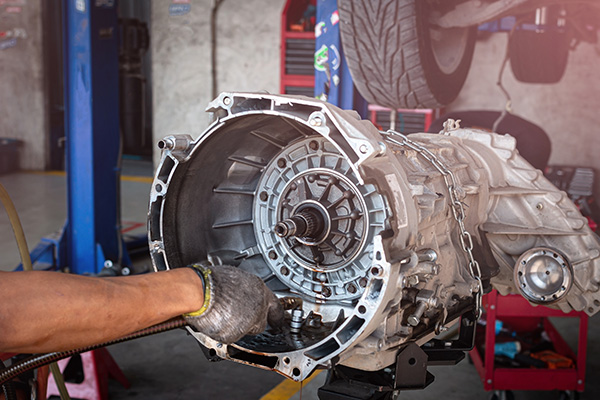
Your vehicle's transmission is a complex system, and one crucial player in its moving parts is the torque converter.
What Is a Torque Converter?
The torque converter is a key component in automatic transmissions. Its primary function is to transfer power from the engine to the transmission. It allows the vehicle to come to a stop without stalling the engine and provides a smooth transition between gears. Comprising an impeller, turbine, and stator, the torque converter relies on transmission fluid to facilitate its operation.
Signs of a Failing Torque Converter
After quite some time, drivers may find themselves with a malfunctioning transmission. If you’re unsure whether the signs are specifically pointing towards the torque converter, check out these symptoms below:
1. Slipping Gears
One of the early signs of torque converter trouble is slipping gears. If you notice your vehicle unexpectedly changing gears or having trouble staying in gear, it may indicate a slipping torque converter. This often manifests as a noticeable surge or hesitation while driving.
2. Unusual Noises
A failing torque converter may produce abnormal noises. Listen for whirring, grinding, or even a 'whumping' sound, especially when the vehicle is in gear. These noises could signify internal damage or fluid-related issues within the torque converter.
3. Overheating Transmission
A malfunctioning torque converter can lead to increased friction and heat in the transmission. If you observe your transmission temperature rising consistently, it could be a warning sign of torque converter issues. Overheating can cause further damage to the transmission and other vital components.
4. Delayed or Rough Shifting
Difficulty in shifting gears or experiencing a delay when shifting can be attributed to torque converter problems. If your vehicle seems to struggle or jerks during gear changes, it's wise to have the torque converter inspected.
5. Sluggish Acceleration
A failing torque converter can result in sluggish acceleration, making it feel like your vehicle is dragging or lacking power. If you notice a considerable decrease in acceleration response, it may be time to investigate the torque converter's health.
6. Increased RPM without Acceleration
When the torque converter fails to engage properly, you might observe the engine's RPM (revolutions per minute) increasing disproportionately to your acceleration. This is often referred to as 'revving' and indicates an inefficient power transfer.
The torque converter plays a pivotal role in the seamless operation of your vehicle's automatic transmission. Being attentive to subtle signs of its potential failure can help you address issues before they escalate into major transmission troubles.
If you notice any of the mentioned signs, please consult with a professional mechanic at Villa Marina Auto Care for a thorough inspection. By staying proactive, you can ensure a smoother driving experience and extend the lifespan of your vehicle's transmission.